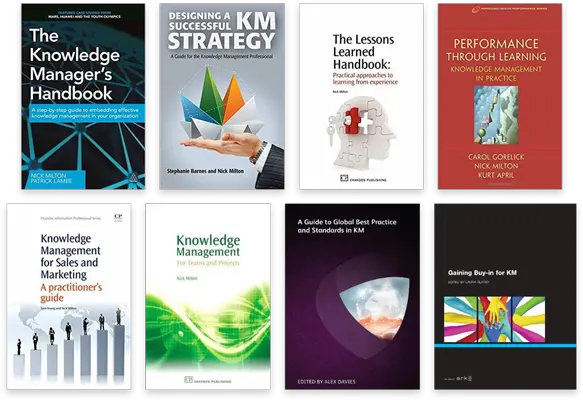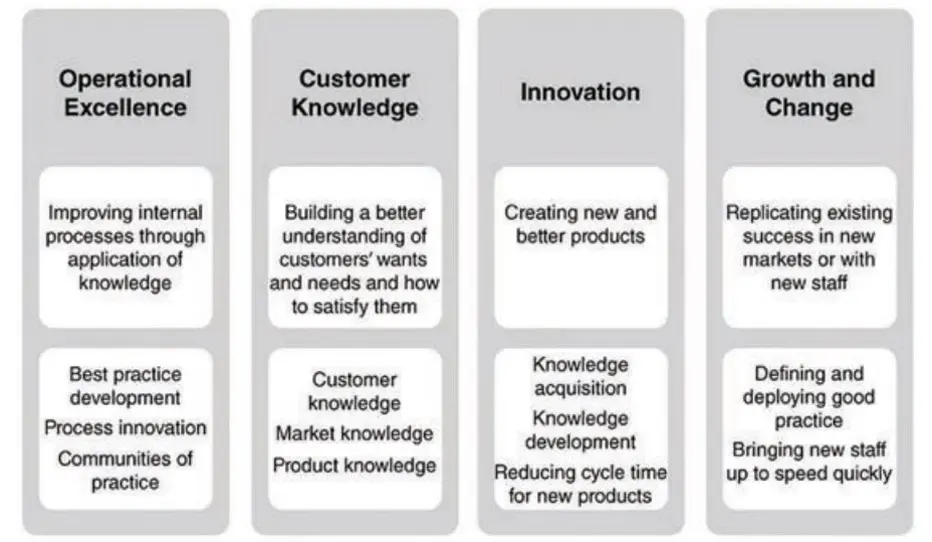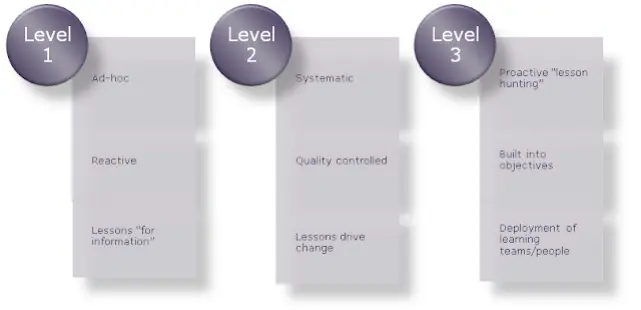Lucidea’s Lens: Knowledge Management Thought Leaders Part 94 – Nick Milton

Stan Garfield
 Nick Milton is a consultant, author, speaker, and instructor. He is Director and VP of Knowledge Management consulting and training at Knoco Ltd. and was a Knowledge Manager at BP. He was a member of the working group ISO/TC 260/WG6 for the development of the ISO standard for Knowledge Management (ISO standard 30401).
Nick Milton is a consultant, author, speaker, and instructor. He is Director and VP of Knowledge Management consulting and training at Knoco Ltd. and was a Knowledge Manager at BP. He was a member of the working group ISO/TC 260/WG6 for the development of the ISO standard for Knowledge Management (ISO standard 30401).
Nick consults on knowledge management strategy, KM framework development, and knowledge management implementation. He specializes in lessons learned, capturing and synthesizing knowledge, and managing major knowledge capture programs for big projects.
Here are definitions for five of Nick’s specialties:
1. ISO 30401: A standard for knowledge management systems that sets requirements and provides guidelines for establishing, implementing, maintaining, reviewing, and improving an effective management system for knowledge management in organizations.
2. Knowledge Capture: Collecting documents, presentations, spreadsheets, records, processes, software source, images, audio, video, and other files that can be used for innovation, reuse, and learning.
3. Knowledge Synthesis: Summarizing existing documents to create new content. More than curating documents, it is combining them, removing duplication and contradiction, and updating the content. The resulting document is organized, well-structured, and validated by an expert or a community of practice.
4. Lessons Learned: Explaining what an individual or team has learned as a result of their experience, using documents, presentations, discussions, and recordings. This includes capturing what was tried, what worked, what didn’t work, what to do, what to avoid, problems faced, how problems were solved, what to do differently next time, and key insights and nuggets.
5. Strategy: A set of guiding principles that, when communicated and adopted in the organization, generates a desired pattern of decision making. The way that people throughout the organization should make decisions and allocate resources in order accomplish key objectives. A strategy provides a clear roadmap that defines the actions people should take (and not take) and the things they should prioritize (and not prioritize) to achieve desired goals.
Nick created the following content. I have curated it to represent his contributions to the field.
Books by Nick Milton

The Four Business Focus Areas for Knowledge Management

The three levels of lesson-learning – don’t get stuck at level 1!

The top 7 tips for successful knowledge management programs
- KM needs to be driven by operational needs.
- KM needs to be introduced as a management framework.
- KM needs to address Pull as well as Push and demand as well as supply.
- KM is a culture change process.
- KM must be embedded in the business.
- KM needs not just high level support, but high level expectation.
- KM should be introduced first where the highest value decisions are made.

Stan Garfield
Please enjoy Stan’s blog posts offering advice and insights drawn from his many years as a KM practitioner. You may also want to download a free copy of his book, Profiles in Knowledge: 120 Thought Leaders in Knowledge Management from Lucidea Press, and its precursor, Lucidea’s Lens: Special Librarians & Information Specialists; The Five Cs of KM. Learn about Lucidea’s Presto, SydneyDigital, and GeniePlus software with unrivaled KM capabilities that enable successful knowledge curation and sharing.
**Disclaimer: Any in-line promotional text does not imply Lucidea product endorsement by the author of this post.
Never miss another post. Subscribe today!
Similar Posts
Lucidea’s Lens: Knowledge Management Thought Leaders Part 106 – Hubert Saint-Onge
As the creator of the Knowledge Assets Framework Hubert has shaped how businesses integrate strategy leadership and knowledge sharing to drive performance.
Lucidea’s Lens: Knowledge Management Thought Leaders
Part 105 – James Robertson
James Robertson is a pioneer in intranet strategy and digital workplace design helping organizations create seamless employee experiences. As the Founder of Step Two and a respected industry voice he has shaped best practices in content management portals and digital experience design.
Lucidea’s Lens: Knowledge Management Thought Leaders
Part 104 – Vincent Ribière
Vincent Ribière advances knowledge and innovation management through AI creativity and KM. Explore his work in academia research and industry leadership.
Lucidea’s Lens: Knowledge Management Thought Leaders Part 103 – Tony Rhem
In this edition of Lucidea’s Lens: Knowledge Management Thought Leaders we highlight Dr. Tony Rhem a leading expert in AI big data information architecture and innovation. As CEO of AJ Rhem & Associates Tony has shaped the fields of knowledge management governance and emerging technologies.






Leave a Comment
Comments are reviewed and must adhere to our comments policy.
0 Comments